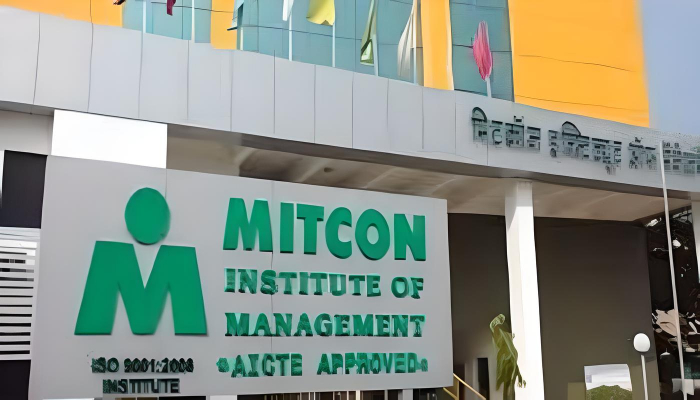One of the Prestigious Institute of Pune Mitcon a place of excellence with a global consultant to businesses and organizations worldwide, that can help you to navigate the complexities of the environment, energy transition, business advisory, skill development and identify opportunities for cost-effective savings in your operation.
As education plays an important role in every person career. Education is what differentiates us from other living bring on earth. It thrive us to empower human being and get them ready to face challenges of life.
As today we will talk about Mitcon Institute and their highly skilled courses and their features.
- Plastic Processing :
In the present age, there is much talk of, much use made of and much thinking about ‘plastic material’ Plastics, as they are generally known to ordinary people who lump them together under the one heading, have become part of the way of life in modern society, just as other material like metal, wood, ceramics have been part of living for centuries past.
In some instances in fact, a very large number of instances, plastics materials have replaced metal, wood, paper, leather etc. in certain application, even when these more ’conventional’ materials have been in use in these application for hundreds of years. This is happening in almost every sphere including the engineering industry, building industry, toy industry automobile industry, electronics and in almost every field which can be brought to mind.
While discussing about plastics, question may arise in mind. what is meant by the term plastic?
In general, plastic is man-made material which is usually derived from a natural material such as coal, oil etc. these natural materials are subjected to various chemical processes, additives put in such other chemicals, until they finally emerge as one certain type of plastic material ready for processing.
This material can be processed by various methods by the application of heat and pressure, until it assumes the shape of whatever it has been processed, formed, or moulded into when this has happened, the heat and pressure is removed, and the plastic material will remain in this form, thereby making the plastic component. Basically this is what is meant by the term ‘plastic’ as we have come to understand it.
WHY PLASTIC?
Now-a-days plastic is used as the replaceable material for the other conventional materials such as glass, wood, leather, paper, metal etc. It is possible because of its outstanding properties which are not possessed by the natural material some of these properties are given below:
- It is light in weight but strong enough.
- It is bad conductor of heat.
- It is bad conductor of electricity.
- It is corrosion resistance.
- It is abrasion resistance.
- It is chemical resistance.
- Optical clarity.
- Low moisture absorption.
- Good for colour acceptance.
- It is color- fed resistance.
- Sanitary, i.e. easy to clean.
CLASSIFICATION OF PLASTIC :
It will be basic of plastic which is mainly classified into two groups as a) Thermo plastic, b) Thermoset plastic.
- Thermo plastic–
Thermo plastic material is that which is hard and right at a normal temperature but become soft on being heated.
A thermo plastic can be softened and hardened repeatedly in this way simply by heating and cooling. Natural Resin, Sealing wax and celluloid are the example of thermo plastic. They softened and acquire plasticity when heated and when cooled they get hardened and retains their final shape.
The articles made from thermo plastic are susceptible to the effect of heat. A celluloid comb cleaned in boiling water may soften and can easily be deformed. An unvulcanized rubber shoe warmed in front of the fire becomes soft and sticky and will very soon loose its shape. For anything that must resist heat therefore thermo plastic is normally of little use.
Examples of Thermo Plastic are : LPDE, HDPE, PP, PVC, PS, ABS, PA, PMMA, PET, etc.
- Thermoset Plastic–
Thermoset plastic differs fundamentally from the thermo plastics in that they can be ‘SET’ irrecoverably in their final shape by continued heating. That is to say the raw material possesses plasticity which enables it to be shaped, but during moulding stage a chemical change occurs in the heated plastic which destroy the essential property of plastic. The material becomes rigid and will not again become plastic.
One of the examples of thermoset plastic is vulcanized rubber. In the raw state direct from latex rubber is thermo plastic. Warm it up and it will soften, cool it, it will became tough and leathery again. By milling rubber its plasticity is increased so that it remains plastic even at a normal temperature. But for practical purpose it is useless. It can deform as easily as it can be moulded.
Goodyear discovery of vulcanization provide way of converting the raw miled rubber into a thermosetting form as it was heated in the mould. The rubber combines with the sulpher mixed into it so that it sets in its moulded shape.
Bakelite is also thermoset plastic. The synthetic material produced from phenol and formaldehyde can be softened by heating and then moulded. But if the heating is continued whilest the plastic is in the mould, the Bakelite undergoes a further chemical reaction which converts it into a solid, the moulded article can not now be resoftened.
The examples of Thermoset plastic are : PF, UF, MF, CF, EP, DAP, etc.

